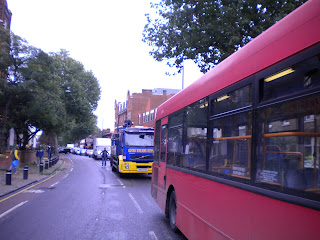

There are two sources of information on road traffic mortality in England and Wales: ONS records giving the place of residence and police records giving the place of the accident. Use of the police records has been limited by the lack of an obvious denominator to control for population at risk. This study compares the two measures and explores the implications of using the same population denominator for both

The number of road traffic deaths occurring in 403 local authority districts in England and Wales during 1995-1999 was compared to the number of deaths to residents in the same period. Both numbers were related to the expected number of deaths to residents and selected environmental risk factors using regression techniques

Large differences were found between the number of deaths in each district and the number of deaths to residents. The expected number of deaths to residents was the strongest predictor of both observed totals. The number of deaths in the district and the number divided by expected deaths of residents were highly predictable from road accident risk factors, but the number of deaths to residents and the conventional SMR were not.

Information on the place of residence of road traffic accident fatalities does not show true variations in accident risk. Police records are better for this purpose. The expected number of deaths to residents estimate provides a partial but effective and unbiased control for population effects.
Shaping the Defence Review Debate
In the next few weeks, the long-awaited Strategic Defence and Security Review (SDSR) takes centre stage in British politics.
During the course of this year, RUSI’s defence research has been noted for its perceptive grasp of the forthcoming Review.
RUSI has set the parameters of the debate by highlighting the scale of the cuts to the defence budget, examining the UK's place in the world and reappraising Britain's Nuclear deterrence. RUSI's work has been cited in Parliament, in government reports and commented on widely in the media.
To see RUSI's work on the Defence Review, visit: www.rusi.org/defencereview
Latest Future Defence Review Working Paper
Entente or Oblivion:
Prospects and Pitfalls of Franco-British Co-operation on Defence
In this paper, Etienne de Durand argues that France and the United Kingdom must exploit the present window of opportunity and substantially enhance their strategic co-operation. A mutual defence policy is now rational, politically feasible and extremely urgent. Download Paper >




































































